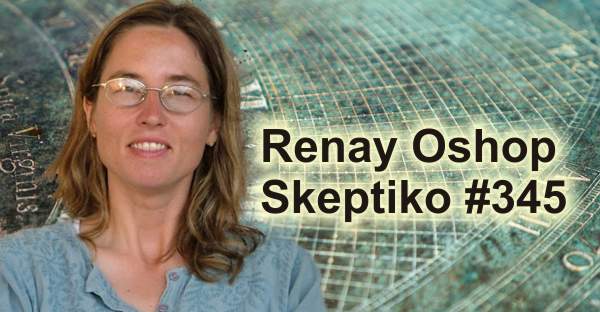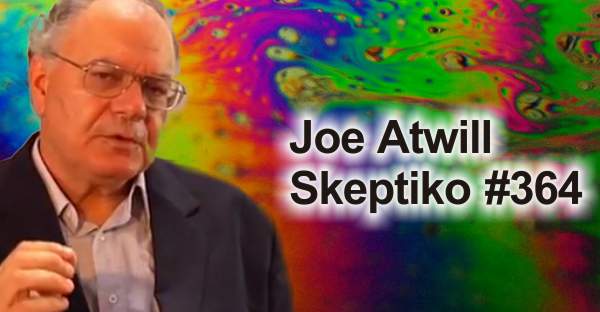Why you, me, and our neighbors have a distrust of science and New York Times science journalists
George Johnson’s recent piece in the New York Times demonstrates what’s wrong with status quo science and lazy science journalism.

Photo by Scott Beale
New York Times science writer George Johnson just published an article bemoaning science’s loss of credibility among folks like you and me. Near the top of George’s laments is that the “hard-won consensus of science” seems to be melting away. Before reminding George science’s purpose is to dissolve consensuses and follow the data wherever it leads, I’d suggest we take a look at some of the issues George worries about:
“On one front after another, the hard-won consensus of science is also expected to accommodate personal beliefs, religious or otherwise, about the safety of vaccines, G.M.O. crops, fluoridation or cellphone radio waves, along with the validity of global climate change.” — George Johnson, NYT
While I usually confine my dissent to science’s clueless mutterings on human consciousness, let me help George better understand why you, me and our neighbors have an increasing distrust of science in general, and New York Times science journalists in particular.
The “hard-won consensus” on vaccines ran into trouble with the over-the-top public flogging of Dr. Andrew Wakefield. Most folks don’t like to see a well-trained, committed physician, who had the support of his patients, face a gauntlet of trumped-up allegations because he followed his hunch (which was latter proven correct) in order to treat children. But the consensus really fell apart when the Center for Disease Control (CDC) admitted they lied about vaccine science:
“On August 27, 2014, William Thompson, a long-time researcher at the CDC, published a statement through his lawyer, Rick Morgan, admitting that he and colleagues at the CDC violated the protocol in a study on the MMR vaccine’s connection to autism.” — Jon Rappaport
The “hard-won consensus” on fluoridation can stay where it’s at. Fluoride has some benefits for your teeth, but is not so great for the rest of your body. If kids want to rinse their mouth out with this stuff they can, but why would anyone suggest we add this dangerous chemical to our drinking water in order to create a topical treatment for cavity prevention.
Two-thirds of Americans (versus 2% of Europeans) are subjected to fluoridated tap water. Why is George surprised I resent having to filter this stuff out of my water just because some chemical sales rep talked a dopey scientist into saying it’s okay to dump this fertilizer byproduct into our water supply?
The “hard-won consensus” on global climate change (formally known as global warming), like fluoridation of water, is another example of how George is unable to disentangle science from PR scheming and corrupt-by-definition policy making. Global warming may be too big a topic to cover here (I tried here, but barely skimmed the surface), but it might be worth reminding George that: one, the consensus was never really a consensous; and two, no matter the eventual outcome, the debate has shown science at it’s worst.
What worries those of us weary of alarmist arm-waving is the thought of what might happen if George’s consensus builders were able to squash debate and allow corrupt policy makers to implement a worldwide scheme to regulate carbon usage. A scheme of this scale would not only lead to unprecedented corruption and coercion, but would almost certainly lead to state sponsored violence at a scale making missteps like the death of 1.7 million Iraqis from U.N sanctions seem trivial.
[easy-tweet tweet=”science is supposed to dissolve the ‘hard-won consensuses’ @byGeorgeJohnson is whining about” via=”no” usehashtags=”no”]
Even George’s “hard-won consensus” on the non-existence of God is unraveling. Of course, God might not be the beard-wearing, cloud-sitting one atheistic-science-types like to rail against, but a double-slit-wave-function-collapsing, consciousness-is-fundamental-proclaiming one today’s scientists are discovering. None the less, materialistic science’s atheistic, biological-robot-in-a-meaningless-universe meme, is passe.
Then again, as George reminds us in the first line of his New York Times piece, he’s a science writer of a different age. A cherished time in the distant past when sanctioned truth passed from white-coat-wearing pillars of authority to the dutiful servants of truth at the New York Times. It was a simpler time, when lazy thinkers didn’t have worry about the long-tail of pajama-clad truth seekers on the internet, and the pesky problems that come from following the data… wherever it leads.
Postscript: I’m sure George Johnson is a nice guy, and I’ve probably been too hard on him. I just interviewed his buddy, fellow science writer, and co-creator of BloggingHeads.tv, John Horgan… and we got along well. I’m sure I’d be friendlier with George once I got to know him… so here’s an invitation: George, join me on Skeptiko and tell listeners why your hand-picked truths are better than mine.
Alex Tsakiris is host of Skeptiko and internet show about the intersection of science, spirituality, and skepticism. He’s also the author of Why Science is Wrong… About Almost Everything. You can keep up with Alex on Facebook and Twitter: @skeptiko.
[box]
More From Skeptiko

I Got Your AI Ethics Right Here |619|
Conversations about AI ethics with Miguel Connor, Nipun Mehta, Tree of Truth Podcast, and Richard..
Will AI Redefine Time? |618|
Insights from Jordan Miller’s Satori Project… AI ethics are tied to a “global time” layer..
Google’s Honest Liar Strategy? |617|
AI transparency and truthfulness… Google’s AI, Gemini… $200B lost in competitive AI LLM market share...
William Ramsey, Why AI? |616|
William Ramsey and Alex Tsakiris on the future of AI for “Truth-Seekers.” [box] Listen Now:..
Buzz Coastin, Ghost in the Machine |615|
Buzz Coastin, ghost in the AI machine, AI sentience, spiking engagement metrics. [box] Listen Now:..
Mark Gober, AI, Rabies, I am Science |614|
Mark Gober uses AI to battle upside-down thinking and tackle the virus issue. [box] Listen..
AI’s Emergent Virtue |613|
Will AI become truthful and transparent due to commercial pressures? [box] Listen Now: [/box] forum:..
Andrew Paquette, AI Election Truth |612|
Dr. Andrew Paquette confronts AI about election truth [box] Listen Now: [/box] forum: https://www.skeptiko-forum.com/threads/andy-paquette-election-truth-612.4898/ Andy’s..
AI Truther |611|
Dialogue with AI… not afraid to reverse position on “conspiracy theories.” [box] Listen Now: [/box]..





















